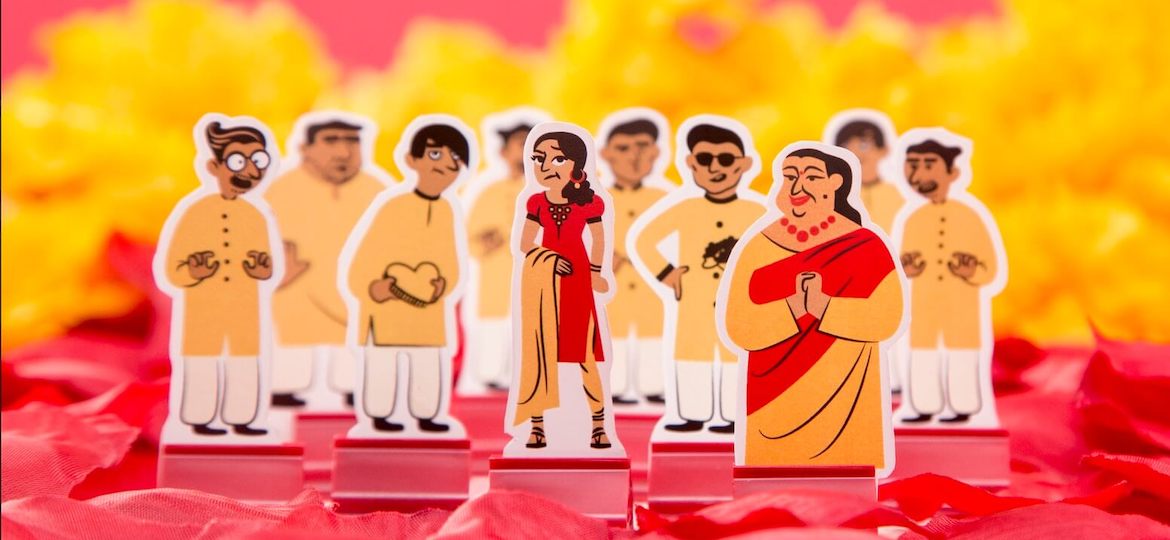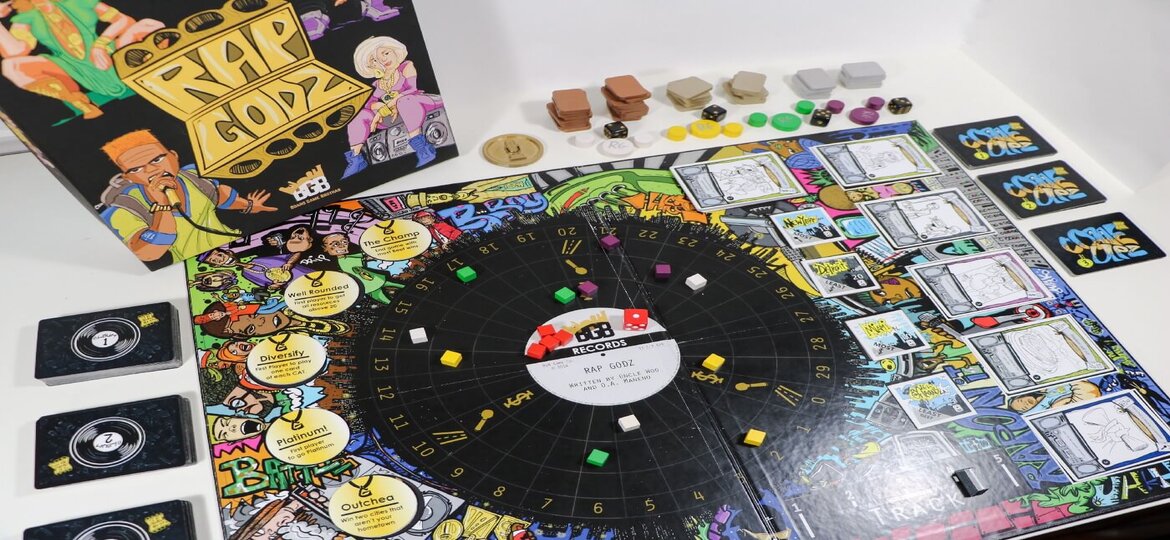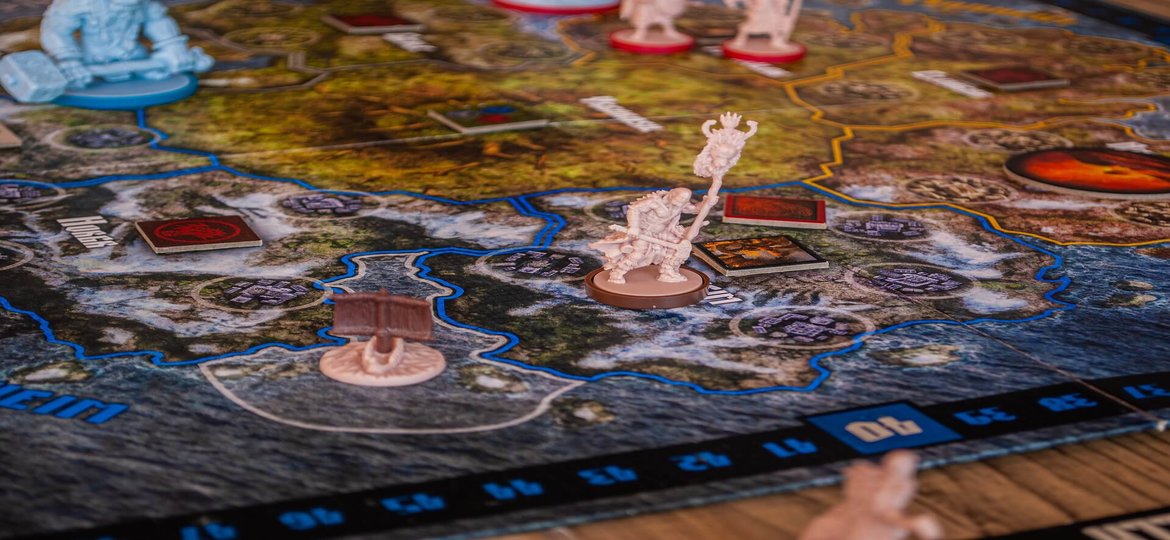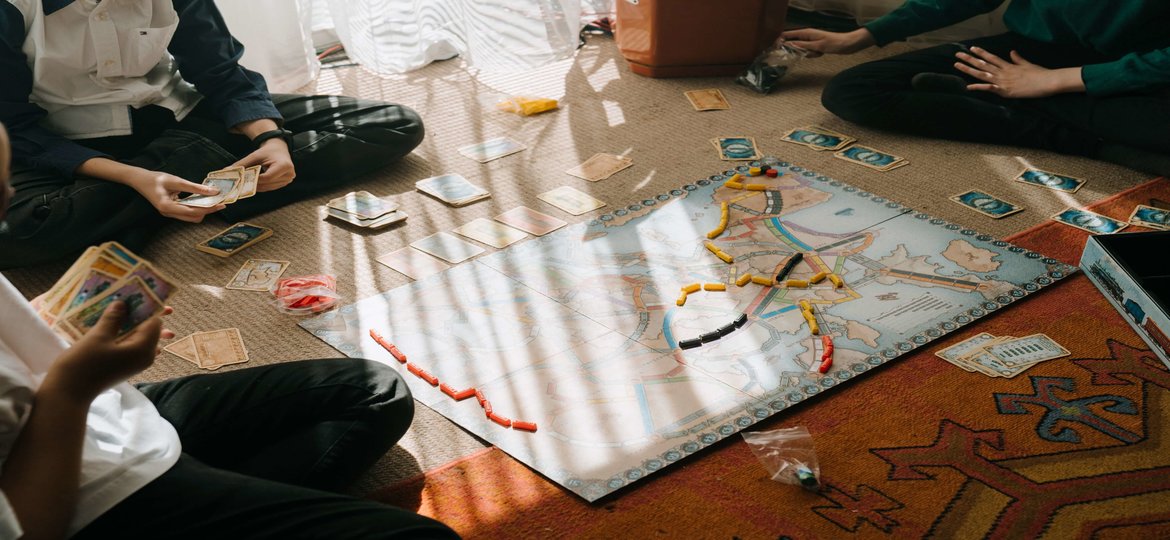With a myriad of games coming out every year, it’s often hard to see the forest for the trees. So our focus is on the next big hit: the game that everyone talks about, with the pretty artwork and custom meeples. At the end of the day, board games are a form of entertainment, right?
Even though the general public has a romanticized feeling about our hobby, you can bet that there are profits to be made. Tabletop gaming is an industry like any other, and there’s lots of money involved.
However, like in any entertainment industry, there will always be indie publishers who are fighting to stand their ground. Often overlooked and found in small and obscure corners of large convention halls, a number of these indie board game titles have an underlying message.
They encourage us to look past 3D printed miniatures and shiny first player tokens. Their main goal is not to dazzle us, but to make us more aware of burning issues. To provide us – in a casual and fun way – with new perspectives on the world. A world that’s much more apparent than we might think, and that’s right under our noses. Once we realize it’s there, it becomes harder and harder to ignore.
No, not the Matrix, you silly goose. I’m talking about sensitive topics, like racism or sexism.
Depending on your race, gender, and which part of the world you live in, the signs might be blatantly in your face, or they might be almost imperceptible. But they’re always there, even in our beloved hobby.
A panel of small board game publishers and Designers of Color (let’s call them DOCs) discussed at Comic Con at Home representation and awareness. Let’s meet our panelists:
- Omari Akil is a writer and marketing consultant, and one of the co-founders of the publishing company Board Game Brothas. Earlier this year they successfully Kickstarted their first game called Rap Godz, a light weight Euro-style game about hip-hop culture.
- Jason Serrato is the co-founder of Horseshoe Games, and the author of Army vs. Aliens as well as the recently released Thug Life, a combat game about urban crime bosses and their rivaling gangs.
- Al Gonzalez is a graphic designer and video editor with a passion for game design. He runs the publishing house Mentha Designs, which has released games like Cantankerous Cats and the recent Prosperitea, in which players run their own tea shop.
- Kimelia Weathers Smith is a producer for TV shows like Project Runway and Hell’s Kitchen. She designed the trivia game Brilliant or BS, which is not about what you know but about what you can make other people believe you know. As you’ll see, it also challenges your preconceptions.
- Nashra Balagamwala is a freelance designer and art director from Pakistan. She’s the designer of Arranged!, a satirical game about arranged marriages in South Asia.
- Eric Slauson is a teacher and game designer known for games like Tattoo Stories and MonsDRAWsity.
- Perry Clemens is a teacher who designed a spin-off of Monopoly called Inequality-opoly, which tries to inform players about the sensitive topics of marginalization and inequality in America.
Why is Representation So Important in the Board Game Industry Right Now?
The panel flies straight out of the gate by tackling one of the most pressing questions first.
Omari believes that the important part about representation is for aspiring designers to get comfortable in the industry.
“Often times in industries that are primarily white, if you don’t see people like you, there’s an uneasiness about going into something,” he explains. “Being able to share your experiences coming from different areas and perspectives is important for the industry itself. The industry needs to grow and be more inclusive, because we all love games.”
Eric adds escapism is a big factor in playing games, whether we’re adventurers fighting dragons or businessmen running a corporation.
“It doesn’t happen often that the main character of a game is a POC (editor’s note: person of color), so it’s hard to put yourself in that role. There’s a barrier there,” he says. “The reason why Captain Marvel or Black Panther have such huge followings is because people are finally getting representation where they can finally see themselves in the role.”
Jason agrees with him. “A lot of us have made games that can be very polarizing to people. As soon as they see a face they’re not used to, it takes them out of their comfort zone. A lot of adult gamers are tone deaf because they just want to forget about the world.”
He believes with children it’s a different story. They are still free of judgment, and the sooner you can open their eyes, the more conscious they will be when they grow up. “But if they don’t have that, they grow up to be tone deaf themselves,” Jason warns.
Arranging a Satirical Commentary on South Asian Marriage
The origin story of Nashra’s game is a prime example of how to combine the playful experience of a board game with a deep, underlying message. She explains how in South Asia, girls are groomed from a very young age so that they’re viable for arranged marriages and appeal to matchmakers who help arrange them.
“I realized that I never wanted to get into an arranged marriage situation,” she explains. “I’m a hopeless romantic at heart, so [as a teen] I started coming up with creative ways to make myself seem less appealing. I cut my hair short, which in Pakistan is a sign of disrespect, being gay or being caught up with the wrong crowd. I was even wearing a fake engagement ring.”
When she was 21, she discovered her parents lined up a suitor for her. At the time she was taking a game design class in the United States and working on an assignment from her professor to make something near and dear to her heart. That’s how she got started on her game Arranged!.
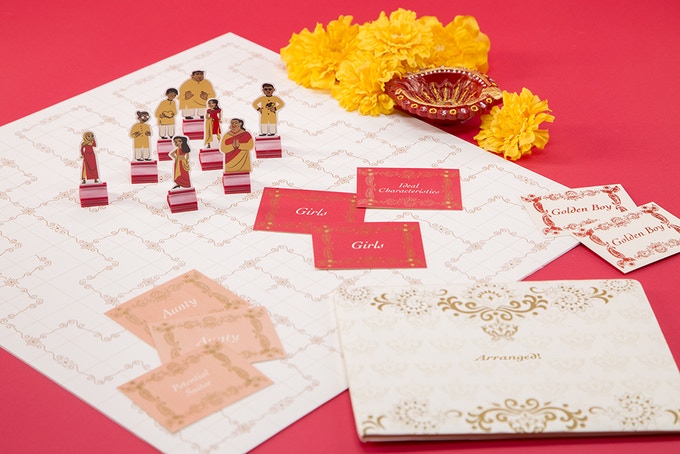
Arranged! lets gamers experience the challenges with arranged marriages. (Photo Credit: Nashra Balagamwala)
The premise of the game is that there’s one matchmaker trying to chase down three teenage girls. Her goal is to get them married to one of the suitors. The girls are running away from her by drawing from a deck of cards which contain actions that are considered to be scandalous.
Many of the cards were inspired by Nashra’s personal experiences. The matchmaker on the other hand is getting closer to the girls by learning about the ‘good’ things they have done, like making a perfect roti or even having childbearing hips.
“The game is satirical. A ridiculous comedic take on everything we do,” Nashra says. “But it does give you an inside perspective of what arranged marriages are.”
Putting the Inequality in Monopoly
Perry’s story is very different. He was on a mission to inform people about the inherent inequality that’s present in America every day. Perry thought about what game really defines America, and quickly he arrived at Monopoly.
“Monopoly is a [game about] meritocracy,” he says. “where everyone rises up because they work hard. But we all know that in America there’s inequality.”
He decided to create a spin-off called Inequality-opoly. He had to leave mechanics out for the sake of keeping the game accessible in terms of weight.
“Simplicity is always desired in board games, but inequality is a complicated matter. Even more so when you’re part of a marginalized group. People want games to be simple, but life isn’t simple,” Perry explains.
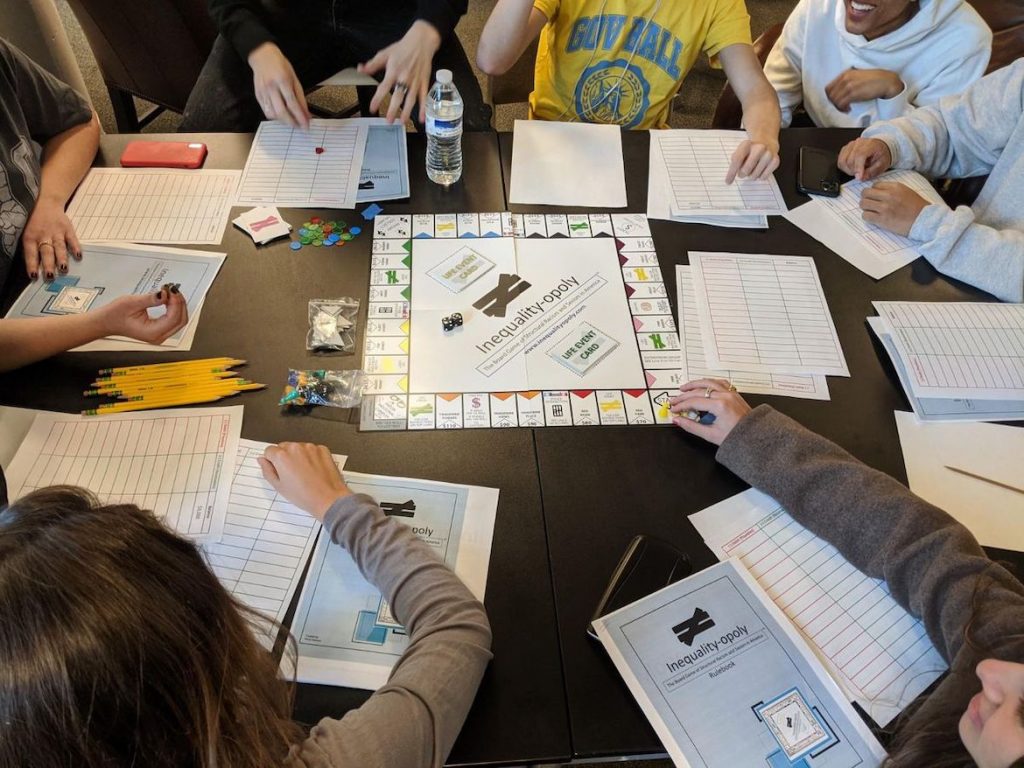
Inequality-opoly subverts the game of Monopoly. (Photo Credit: Perry Clemens)
He wanted people to realize that whether you’re white, black, woman or man: even if you work hard in the game, you’re still not guaranteed to become wealthy.
“The odds are against you over and over and you need to get really lucky to achieve some sort of equality,” Perry says. “It’s interesting to see people’s reactions to that, because the game teaches you about exploitation, and how sadness or tragedy for one person creates an opportunity for someone else to make money”.
Sketching Out Social Justice Commentary
Eric created a game called MonsDRAWsity, which is based on police sketch artist work. The twist is that players find themselves in a weird sci-fi universe, trying to describe an alien they saw. You get to look at an alien, then look away for 20 seconds, and then you have to describe it from memory for the other players to draw. “It’s a silly game, but about 20% of the plays we would get into a big conversation about the justice system,” Eric says.
MonsDRAWsity is a good example of how games can be a perfect vehicle for awareness. What the players don’t realize initially, is that the game shows them how difficult it is to rely solely on imperfect memory for something as serious as pointing out a suspect in a crime.
Al points out that while players are having fun during the game “they suddenly come to the realization that they’re being talked to. They then feel smart instead of feeling like they’re being lectured.”
Highlighting Marginalization Through Gaming
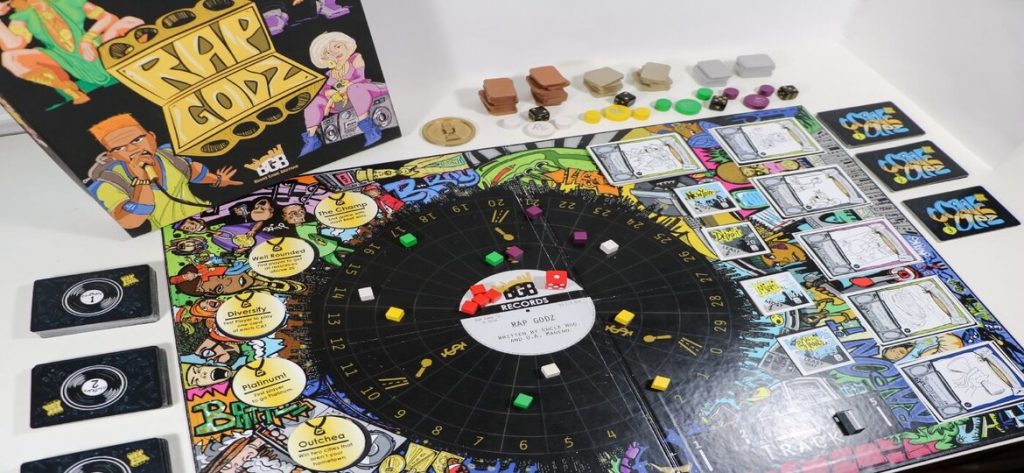
Rap Godz lets you be the rapper. (Photo Credit: Omari Akil)
Omari, who designed the hip-hop game Rap Godz, deliberately left an imbalanced mechanism in his game to show what it’s like to be marginalized.
“One person starts out slightly ahead on one of the resource tracks, and because of that they have a better chance of picking up bonuses,” he explains. “There’s no mitigation for that at all: if you start out ahead, you’re just ahead.”
Kimelia didn’t intend to create her trivia game with an underlying message, but she discovered nonetheless that biased assumptions did arise. The game is about figuring out who knows the answer to a question and who’s just pretending to know. Players have to make their case by explaining why or how they know the answer, without giving it away. A judge then decides who gets to answer the question.
Through playtesting she discovered that 90% of the time, if it’s a sports category question, the opportunity to answer will almost never be given to a woman. Players tend to assume the males in the room are better at sports, even if a woman gives an excellent explanation as to why she should be picked.
“I have a friend who works at the Sports Network and they never give her the credibility, even though she’s clearly the expert in the room,” Kimelia says. “It’s something that I didn’t intend [to put in the game], but it really shows how our personal experiences and backgrounds frame what we think about other people.”
Stay Tuned for Part Two…
Part two of this panel highlights dealing with Internet Trolls and how best to tackle sensitive subject matter in gaming. Continue reading it here.
And in case you missed it, check out our article on diversity behind the scenes in the animation industry.
Feature Image Credit: Nashra Balagamwala (from Arranged!)

